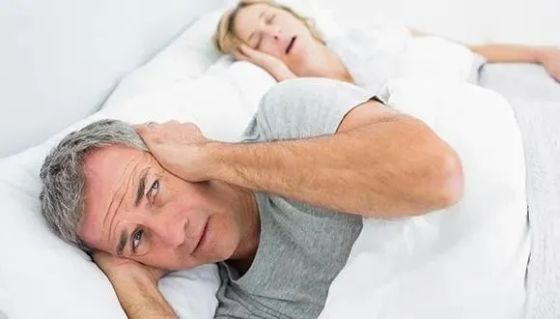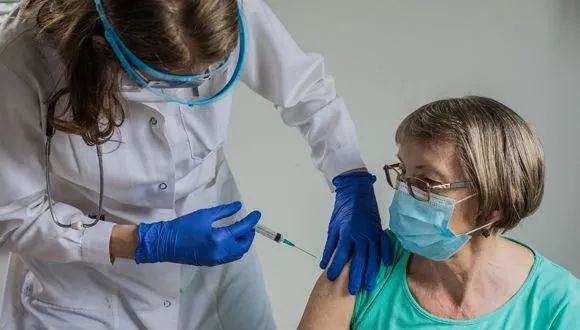
Want to Live Longer? Find Out if You Snore
Women over 50 who snore face an elevated risk of sleep apnea.
If you’re a woman and over 50, we recommend that you find out whether or not you snore at nights (your bed partner may or may already have alerted you to the issue). TAU researchers found that women aged 55 and over who snore are at increased risk for sleep apnea, which can be fatal. Because the phenomenon occurs during sleep, most women who suffer from sleep-disordered breathing are not aware that they are at increased risk.
“The lack of early diagnosis is particularly noticeable in one of the target demographic groups: women over the age of 50, who suffer from an increase in the incidence of sleep-disordered breathing due to hormonal changes that occur during menopause,” warns TAU’s Prof. Ilana Eli, adding “We wanted to examine and characterize the phenomenon in this group in order to raise a red flag when necessary.” The following study was conducted by Dr. Alona Emodi-Perlman, Prof. Ilana Eli, Dr. Jawan Sleiman and Dr. Pessia Friedman-Rubin from the Department of Oral Rehabilitation at The Maurice and Gabriela Goldschleger School of Dental Medicine at Tel Aviv University, and was published in the prestigious Journal of Clinical Medicine
Drop the Shame
The researchers examined hundreds of Israeli women, whom they divided into two groups: women aged 20-40 (pre-menopause) and women aged 55 and over (post-menopause).
They found that 15% of the older women are at significant risk for sleep apnea, compared to only 3.5% of the younger women. In addition, they found that 11% of the women who snore are at increased risk for sleep apnea, compared to only 1% of the women who do not snore.
In the study, the participants filled out dedicated questionnaires, which included a variety of questions such as: How do you feel when you get up in the morning: Fatigue, headache, tension/stiffness in the muscles of the face, neck and jaw? Do you grind your teeth at night? Do you wake up during the night? Do you feel tired or drowsy during the day? And the big question, which many women are ashamed of answering: Do you snore? The data were weighted with physical indicators – BMI and neck circumference, which is known to thicken in old age, as well as demographic data – work, number of children, marital status, etc. The findings make it possible to define three categories of risk for sleep apnea: women who are at high, medium and low risk.
Prof. Eli explains that sleep breathing disorders range across a broad spectrum – from mild snoring to the most severe and dangerous disorder – sleep apnea. Sleep apnea causes a decrease in blood oxygen concentration and can, as mentioned, be life-threatening. In addition, if the phenomenon is not diagnosed and treated in time, it can contribute to the development of a variety of systemic diseases, such as hypertension, cardiovascular disease and stroke.
Ask the Right Questions
The difficulty in diagnosing it is mainly due to lack of awareness and under-reporting: women suffering from the problem are unaware of it because it occurs during sleep. They are more likely to report fatigue, headaches, masticatory muscle soreness upon awaking or sleep problems like insomnia to their doctors. It is therefore important that the attending physician makes the connection, asks the right questions and even seeks further diagnosis in case of suspected sleep apnea.
Grinding of teeth at night, high BMI, and a relatively large neck circumference are additional warning signs, according to the researchers.
In the wake of these findings, the researchers address doctors, and especially those who focus on the orofacial area – dentists: “Take note of symptoms that may indicate a risk of sleep apnea. Ask your older patients the relevant questions that no one is asking, such as: Do you snore? Do you suffer from headaches/neck pain when you wake up? Ask them to fill out a dedicated questionnaire to identify the risk of sleep apnea. Take note of the condition of the teeth – are there any indications of grinding of teeth at night? Note the thickness of the neck, which tends to expand in old age. And the bottom line is, if you have identified a high-risk patient, refer her to a sleep diagnosis specialist. This way, we can diagnose women who are ‘under the radar’ due to lack of awareness and under-reporting and provide them with appropriate and life-saving care.”
Related posts






Destroying Cancer: new drug delivery system containing RNA therapy can target cancer cells in bone marrow





Operation Guardian of the Walls: Women, Young People and Residents of the South Paid the Heaviest Price



Breakthrough Gene Therapy Offers Hope for Severe Developmental Epilepsy in Children

Prof. Isaac P. Witz Honored with 2023 Szent-Györgyi Prize for Progress in Cancer Research

